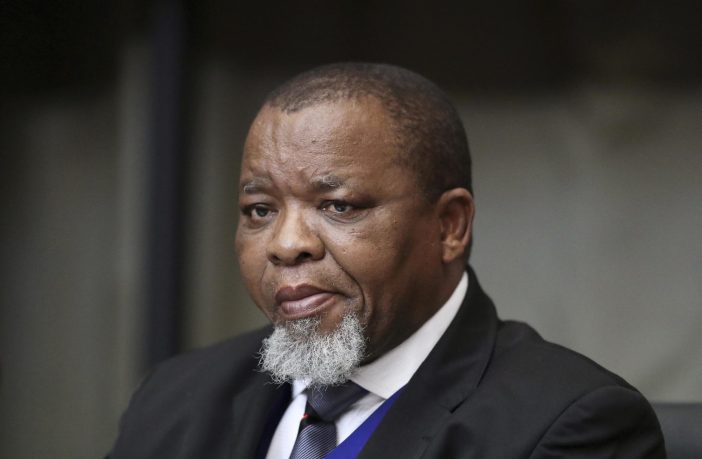- South Africa’s Mineral Resources and Energy Minister (DMRE), Mr Gwede Mantashe, has announced that the government is considering reopening Renewable Energy Independent Power Producer Procurement Programme (REIPPPP) Bid Window 5.
- He said that only one bidder in Bid Window 5 had reached financial close despite a six month financial close deadline extension from 31st March to 30th September 2022.
- Mantashe made the announcement yesterday while briefing journalists on progress made in government’s Economic Recovery and Reconstruction Programme.
- However, it is widely speculated that the real reason for rebooting Bid Window 5 is because the outcome was likely rigged, an allegation which the DMRE strongly denies.
- Another likely reason is that the IPP Office, who are responsible for new generation procurement management, violated their own procurement prescripts including section 217 of the Constitution when adjudicating and awarding project preferred bidder status in Bid Window 5. Read more
- You can determine and navigate such events by learning Best Practice for Economic Regulation in power markets on the African Continent at the UCT Graduate School of Business course – Managing Power Sector Reform and Regulation.
South Africa is in desperate need of new generation capacity, rotational load shedding is getting worst and the cost to the economy is a massive R950 million a day.
Since the Independent Power Procurement Office (IPPO) was seconded to the Central Energy Fund in 2017 and then purged in 2019 to fall under the Department of Mineral Resources (DMRE), the ability of the country to procure new generation capacity has declined dramatically.
The Department of Mineral Resources and Energy (DMRE) along with the Independent Power Producer Office (IPPO) is responsible for energy procurement in the country.
Related news: Ramaphosa missed the boat spectacularly in his sweeping energy reforms
Mr Gwede Mantashe was appointed Minister of Mineral and Energy Resources in May 2019. That same year Mantashe was credited for promulgated the country’s Integrated Resource Plan (IRP) which seeks to procure 35348MW of a mix of generation technologies by 2030. The following year he gazetted a Sector 34 determination to procure 11813MW of power by 2022.
Since Mantashe’s appointment, three energy procurement programmes have been implemented namely; the Risk Mitigation Independent Power Producer Programme (RMIPPPP) which seeks to procure 2000MW of new generation capacity (launched in September 2020), and the Renewable Energy Independent Power Producer Procurement Programme (REIPPPP) Bid Window 5 which seeks to procure 2500MW of new generation wind and solar capacity (launched in April 2021). A third procurement programme, REIPPPP Bid Window 6 which recently amended to procure 4200MW of solar and wind capacity, was launched in April this year.
In total, 7100MW is to be procured under the three programmes yet to date only 150MW ( 3 x 50MW projects) has reach financial close and is expected to feed electrons into the grid at the end of Q4 2023.
“Those who do not reach financial close, we can look at. But what is not possible is to wake up and say we are reopening it for those who were successful because there were bidders whose applications were not accepted. If you adjust conditions, you will have to reopen the whole process,” said Mantashe.
Taking a closure look at the outcome of Bid Window 5 there are several standout red alerts as to why projects are not reaching financial close:
- One international IPP, Mainstream Renewable Power, won 12 of the 25 projects
- 21 of the 25 preferred bidders have the same BBBEE partner in H1 Holdings – Mainstream RenewablePower (12 projects), Scatec (3 projects) and EDF (3 projects) and local IPP Red Rocket (3 projects). The underlying principle of B-BBEE is to spread wealth sustainably and as far as possible, to the previously disadvantaged.
- 21 of the 25 projects were won by foreign-owned IPP’s.
- 15 of the 25 projects were won by Norwegian IPP’s.
- The tariffs bided were unsustainably low and not The average weighted price bid for solar comes in at (R) 42.9c kW/h while the average bid for wind is (R) 49.5c kW/h. Industry experts claim that the winning tariffs are too low to be realistic and may be sponsored. Read more
- The majority of the projects who won preferred bidder status were not shovel-ready and had outstanding development works activities including CEL, EIA and other permitting.
- The criteria set for local content are unrealistic and cannot be
- The increase in the cost of components like wind turbines, inverters and solar panels during the extended delay has found winning bidders with ‘stranded’ financial models that may not be bank presentable.
Author: Bryan Groenendaal















